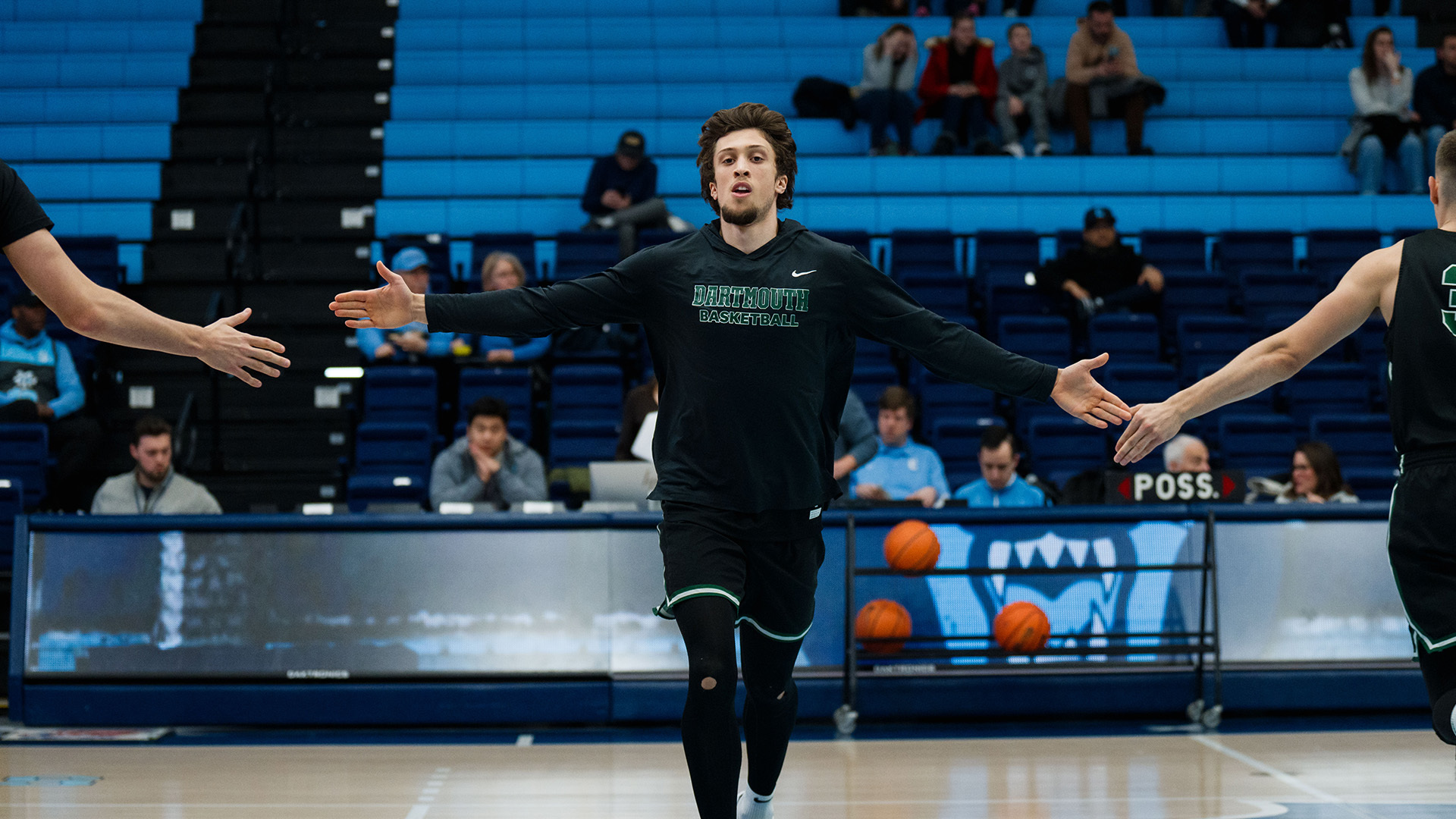
Simone Del Rosario: For a team that loses more than they win, Dartmouth College basketball players racked up two victories on March 5. Their season finale against Harvard. And the vote to be the first college athletes to unionize.
Voting 13-2, Big Green’s basketball players voted to join Service Employees International Union Local 560, which already represents other Dartmouth employees.
The same day, Dartmouth College appealed the National Labor Relations Board decision that Dartmouth players are employees.
In a statement, Dartmouth said, “Classifying these students as employees simply because they play basketball is as unprecedented as it is inaccurate.”
Dartmouth College has argued unionization is not appropriate in part because unlike other universities where athletics generate millions of dollars, the costs of Dartmouth’s athletics program far exceed any revenue.
Michael Hsu: Those arguments, I think, are phony arguments.
Simone Del Rosario: Michael Hsu is a former University of Minnesota Regent and co-founder of the College Basketball Players Association.
Michael Hsu: If you have unionized secretaries, or even factory workers, you can’t make the argument that they don’t make money for the company, or they lose money for the company. So I think it’s a ridiculous proposition that they would use that argument. It doesn’t even have a meaningful example in the corporate world.
Simone Del Rosario: Hsu has filed two charges with the NLRB against NCAA and Northwestern’s use of the term, “student-athlete.”
Movie clip: We’re student athletes, bro.
Movie clip: A wonderful student athlete.
Movie clip: These boys are student athletes. Student comes first.
Simone Del Rosario: But unlike the well-meaning characterization by Coach Carter, the term student-athlete was not crafted to prioritize education.
Michael Hsu: The term was created by Walter Byers, the first executive director of the NCAA in the 1950s. And they created the term to try and escape liability, legal liability.
Simone Del Rosario: In 1955, Fort Lewis A&M football player Ray Dennison crushed his skull during a game and later died. His widow filed a claim for death benefits under workers’ compensation. The case made it to the Colorado Supreme Court, where the justices ruled the compensation fund did not extend to student athletes.
Byers, who made sure the term “student-athlete” was embedded throughout college sports, later renounced its use in his memoir. The NCAA continues to use the term.
NLRB General Counsel Jennifer Abruzzo warned in 2021 that where appropriate, she will allege that calling players student-athletes is a violation of the National Labor Relations Act.
On the losing side of multiple lawsuits regarding college athletes’ amateur status, NCAA President Charlie Baker is asking Congress to take action to preserve college sports.
Michael Hsu: He’s basically admitting that they’re violating the law, right, by saying that, but he’s saying, oh, we need a new law to make this okay and make it legal.
Simone Del Rosario: Baker claimed 95% of athletes’ opportunities would be endangered if athletes were considered school employees. Like Dartmouth, he’s arguing the vast majority of schools lose money on athletic programs and can’t afford to pay their players.
The NCAA continues to push Congress for a limited antitrust exemption to give it a break from the onslaught of lawsuits it now faces.
As for Dartmouth and the fight against its basketball-playing employees, Hsu says that case will likely be appealed all the way to the Supreme Court.







